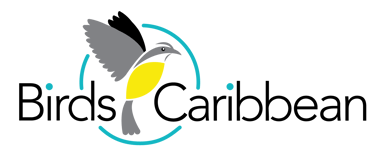If, like me, you're more moved by the majestic flight of a Brown Pelican cruising just above wave crests than by the fluttering of songbirds in a bush (no offense to songbirds: you're majestic too, in your own ways) then you probably know that, in the Caribbean and elsewhere, humans and seabirds have long interacted in obvious (harvesting eggs, following seabirds to fishing grounds) and not-so-obvious ways (fertilization of seagrass and coral habitats by seabird guano around nesting colonies).

Unfortunately, although seabirds are such a major part of our coastal culture that we named towns after them and wrote poems and songs to honor them, they have long suffered from this interaction through a multitude of threats, from predation by introduced invasive species to overfishing, contamination, and disease outbreaks.

In 2019, I attended my first BirdsCaribbean conference in Le Gosier, Guadeloupe (a coastal town named after the "Grand Gosier", the creole name for the Brown Pelican) and I soon joined BirdsCaribbean's Seabird Working Group as a co-chair. Thanks to BirdsCaribbean's relentless support, the working group was able to organize a series of training webinars on seabird colony monitoring and surveying, followed by a first-of-its-kind effort to census seabird colonies throughout the region, all at once. This Caribbean Seabirds Census 2023-2024 is still ongoing but we wouldn't have been able to even consider it without the existing network of conservation professionals that is BirdsCaribbean.

By donating to BirdsCaribbean (like I try to do when I can), you know that your financial support will be used to conserving Caribbean birds where it's needed: whether trough region-wide efforts like what the Seabird Working Group is doing or through more local research, conservation or education grants, your support will help better understand and tackle those threats affecting seabirds (and songbirds too!).
Thanks!


